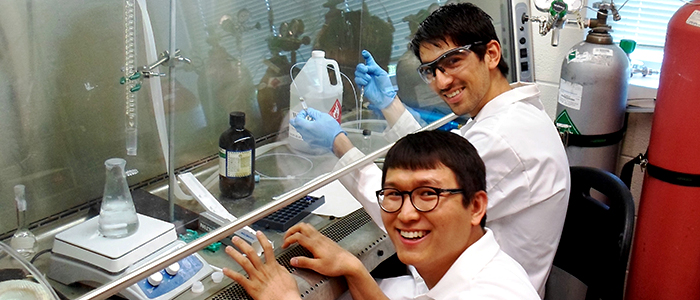Research
Contact
Department of Civil and Environmental Engineering
Spencer Engineering Building,
Room 3005
Western University
Tel: 519-661-2139
Research program inquiries (MESc/PhD):
ceeresearchgrad@uwo.ca
Professional program inquiries (MEng):
ceeprofessionalgrad@uwo.ca
Undergraduate Inquiries:
civil@uwo.ca
Environmental and Water Resources

Civil engineers who specialize in environmental engineering apply scientific theories and principles to minimize the impact of our lifestyles on the environment. They ensure that the use of water, land, and air resources are sustainable, and that environmental pollution and degradation are minimized.
Aspects of Environmental and Water Resources Engineering
- Acid rock drainage
- Coupled liquid, vapour and heat transfer in soils
- Electrokinetic dewatering
- Soil and groundwater remediation
- Detection of soil and groundwater contamination
- Resuspension of flooded mine tailings
- Landfill leachate treatment
- Biological treatment of wastewater
- Treatment process modeling
- Industrial and mining waste recycling
- Detection of soil and groundwater contamination
- Hazardous contaminant biotreatment
- Interaction of aggressive chemicals with liners
- Design of engineered caps and coversInteraction of aggressive chemicals with liners
- Design and analysis of waste containment systems
- Groundwater contamination
- Neural nets and fuzzy sets for water resources management
- Artificial neural networks for simulation of turbulence
- Risk and reliability
- Air pollution and atmospheric dispersion of pollutants
- Computational fluid dynamics
- Water resources systems modeling
- Management of multipurpose reservoirs
- Hydropower optimization
- Environmental hydraulics
- Thermal pollution of water
- Design of stratified mixing channels
- Thermal saline plumes
Faculty in Environmental and Water Resources Engineering
- M. Dagnew
- M.R. Najafi
- G. Nakhla
- C. Power
- C. Robinson
- A. AlSayed

